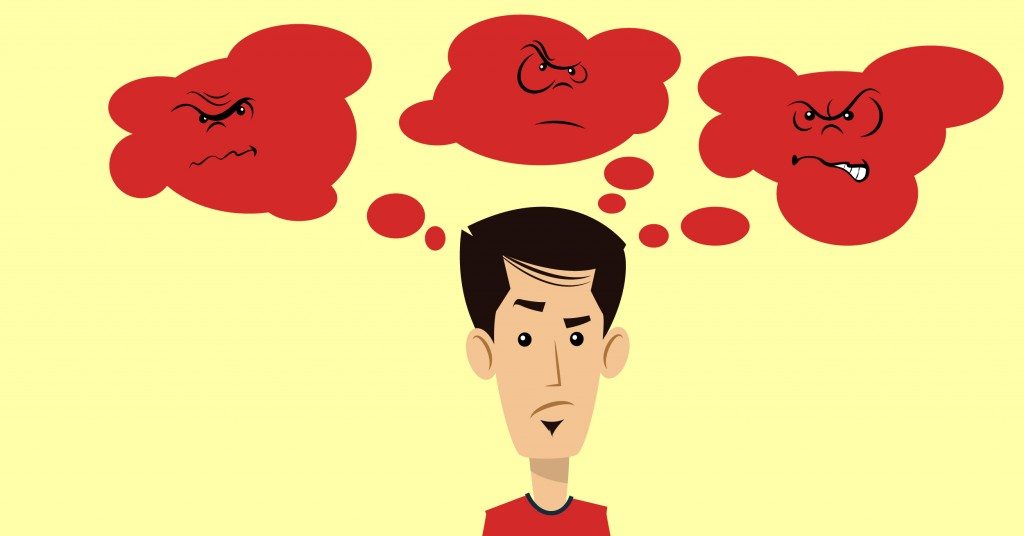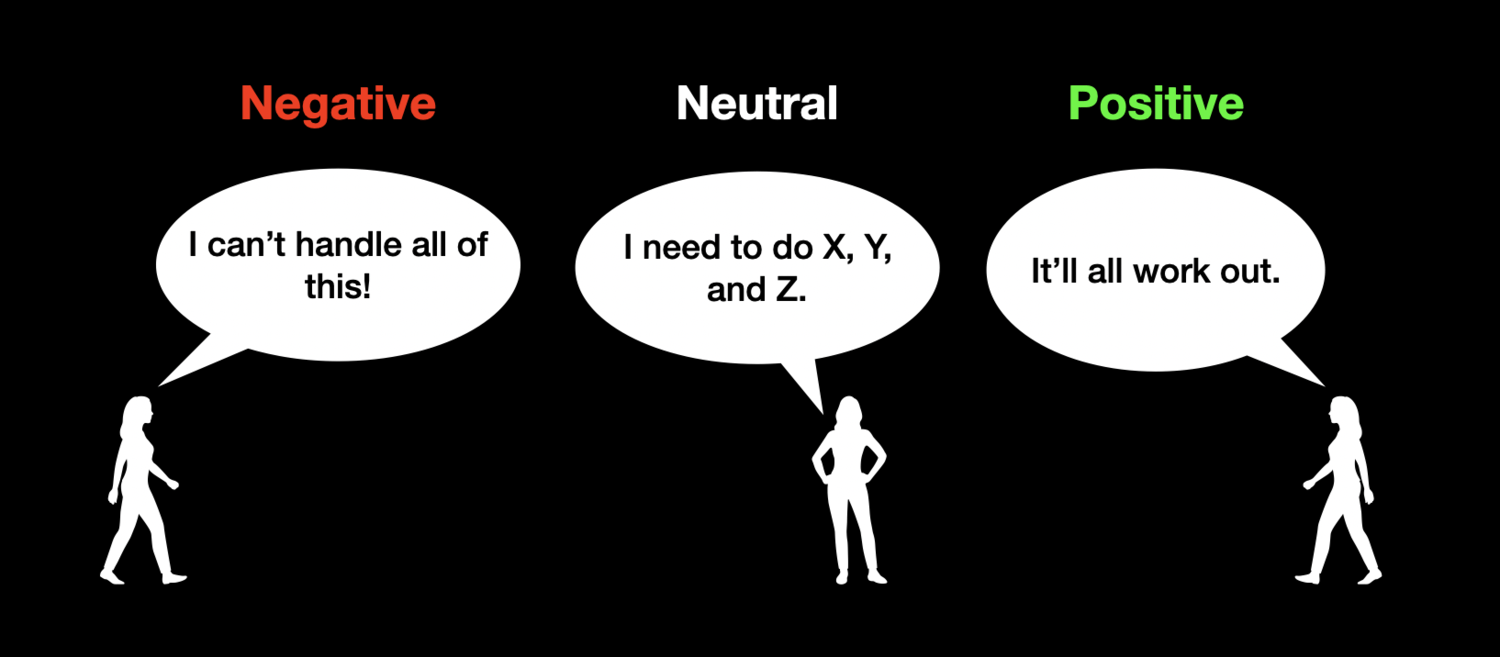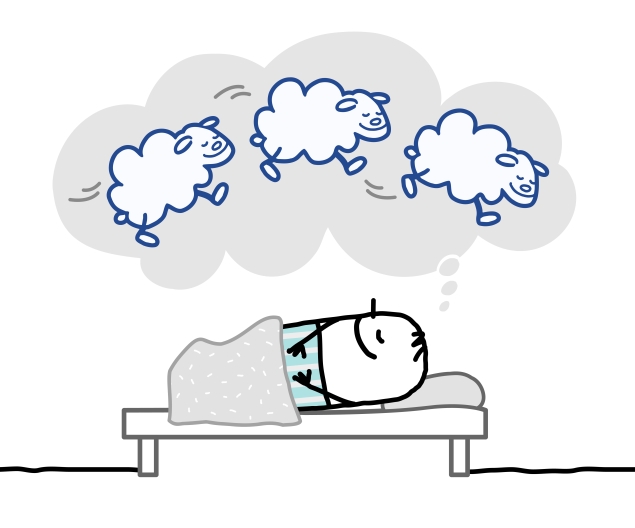Thought is a funny thing. It’s difficult to define, yet we all experience it on a daily basis. How do you feel when I say the word thought? What are your thoughts about that word? Does it evoke an emotion or feeling for you? Thought can be defined as any form of mental activity including reasoning, remembering, imagining, and problem-solving. This blog post will explore what thought is in more detail so that our readers have a better understanding of this elusive concept.
Contents
What Is Thought?
 Thought is a mental process that allows you to make sense of the world around you. It involves organizing and interpreting information, as well as using past experiences to plan for the future. Thought also enables you to communicate with others, express your feelings, and create art and music. In short, thought makes you human.
Thought is a mental process that allows you to make sense of the world around you. It involves organizing and interpreting information, as well as using past experiences to plan for the future. Thought also enables you to communicate with others, express your feelings, and create art and music. In short, thought makes you human.
It’s hard to define thought exactly because it’s so intimately connected with consciousness. But one way to think about it is as a kind of inner dialogue or conversation you have with yourself. You use thought to reflect on your own thoughts and feelings, as well as the thoughts and feelings of others.
Types of Thoughts
There are some types of thoughts that are universal. These include:
Positive Thoughts
 These positive thought processes help us to feel happy, optimistic, and productive. They can include things like gratitude, hope, and love. Positive thoughts can be a result of your own personal experiences, or they can be inspired by others.
These positive thought processes help us to feel happy, optimistic, and productive. They can include things like gratitude, hope, and love. Positive thoughts can be a result of your own personal experiences, or they can be inspired by others.
Negative Thoughts
 Negative thoughts are the opposite of positive thoughts and can lead to feelings of anxiety, depression, and guilt. Some common negative thoughts include self-judgment, fear, and envy. Negative thoughts often arise from our own personal experiences, but they can also be influenced by the media or other people.
Negative thoughts are the opposite of positive thoughts and can lead to feelings of anxiety, depression, and guilt. Some common negative thoughts include self-judgment, fear, and envy. Negative thoughts often arise from our own personal experiences, but they can also be influenced by the media or other people.
Neutral Thoughts
 These neutral thoughts do not typically elicit strong feelings of happiness, sadness, or anything in between. These types of thoughts can include certain smells and songs that we associate with memories from our past.
These neutral thoughts do not typically elicit strong feelings of happiness, sadness, or anything in between. These types of thoughts can include certain smells and songs that we associate with memories from our past.
What Is Thought Processes?

The thought processes mentioned above are just a few examples of how you think on a daily basis. Everyone has their own way of thinking about the world around them based on personality factors such as openness to new experiences and extraversion versus introversion. Other thought processes involved in cognition include:
Intrapersonal Thought
This type involves self-reflection and soliloquy—it’s when you talk to yourself inside your head without saying words out loud or using gestures.
Interpersonal Thought
This is similar toro personal thought but involves communicating with others. It can take the form of verbal conversations, mental images, or even just feelings.
What Is Thought Suppression?

This is when you try to push thoughts out of your mind because you don’t want to deal with them. This often leads to more intrusive thoughts popping up in their place.
These are negative thought patterns that can lead to inaccurate beliefs about yourself and the world around you. Some common cognitive distortions include all-or-nothing thinking, magnification/minimization, and catastrophizing.
Factors That Affects Your Thoughts

These are some of the factors that can influence the thoughts you have on a daily basis:
Personality
Your personality traits play a big role in shaping your thoughts. Things like openness to new experiences and extraversion versus introversion can affect how you think about yourself and others.
Life Experiences
The things that happen to you throughout your life will shape the way you think. This includes both positive and negative experiences, as well as events that occur early in life or later on in adulthood.
External Influences
The media, friends, family members, and other people can all have an impact on the thoughts you have. It’s important to be aware of these external influences so that you’re not blindly accepting someone else’s perspective without questioning it.
How Does Thought Affect Your Lives?

Thoughts have a lot of impacts on your daily life. Some of these are:
Helps To Form Your Identity
Thoughts about who you are and what kind of person you want to help define your identity. This is why people can have trouble with self-acceptance when their thoughts don’t align with a particular ideal image they may have in mind.
Helps You Make Decisions
Thought plays an important role in decision making, from big decisions like which college to attend all the way down to small choices such as picking out new clothes for yourself. Thought helps you weigh possible consequences and allows you to predict how other people will react if certain events come true or false.
Impacts How You Interact With Others
The thoughts that each hold also affect your interactions because it influences what you notice in your environment and the things that you focus on. This then determines how you act, what comes out of your mouth in conversation, and whether or not certain people are attracted to each other based on their similar thought patterns.
How Can You Improve Your Thought Patterns?

Do you ever wonder why you feel the way that you do? In other words, how can your thought patterns be changed to make them more positive? There are a lot of ways to change your thoughts and feelings. One way is through cognitive therapy. Another way is through meditation. These techniques have been proven successful in changing one’s thought patterns and helping them feel happier and more content with themselves.
Some other methods are:
Accepting Thoughts As They Are
Try not to judge yourself too harshly when thinking negative thoughts because this can lead to increased stress levels which only makes matters worse in practice.
Being Mindful Of The Present Moment
Be mindful of the present moment by focusing all of your attention on the task at hand. This will help you to stay in the present and avoid getting lost in your thoughts.
Challenging Cognitive Distortions
If you notice that you tend to think in a certain way that’s not very accurate, challenge those thoughts by examining the evidence for and against them.
Journaling
This is a great way to keep track of your thoughts so that you can look back on them later and see if there are any patterns emerging. It also helps to externalize your thoughts so that they’re no longer just rattling around in your head.
Practicing Positive Affirmations
This method is all about repeating positive statements to yourself. Repeating a statement like “I am capable and I can do this” can help to increase your self-confidence and change your thought pattern.
Challenging Yourself
If you find that you are always doubting yourself, try challenging yourself with new tasks. This will help to push you out of your comfort zone and force you to think more positively about yourself.
Being Mindful
Mindfulness is all about being in the present moment and focusing on your thoughts and feelings at that specific time. When you are more aware of what is going on in the present, it can be easier to let go of negative thoughts.
Trying Meditation
When you meditate, you focus on your breath and allow all other thoughts to pass by. This can help to clear your mind and improve your thought patterns.
Practicing gratitude
Gratitude is a very powerful emotion. You can practice it by thinking about what you are grateful for and focusing on the positive aspects of your life rather than dwelling on all that you do not have or cannot achieve. This can help to improve both your happiness and thought patterns.
Conclusion
In conclusion, thoughts play a big role in our lives and it’s important to be aware of them so that we can better understand ourselves and the world around us. Thoughts are not always accurate, but by being mindful of them and challenging any cognitive distortions, we can improve our thought patterns over time.
If you are looking for affordable Online Counseling MantraCare can help: Book a trial therapy session


